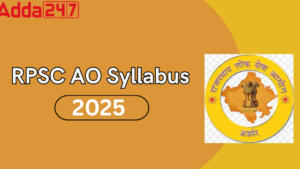Table of Contents
Preparing for the NABARD Grade A Exam can feel overwhelming, but with the right plan, you can succeed on your first try. This guide will help you understand the exam format, cover the syllabus, and develop effective study habits. Whether you are just starting or looking to improve your preparation, this roadmap will give you the tips and strategies you need to do well in the NABARD Grade A Exam 2024.
Understanding NABARD and the Exam Structure
What is NABARD?
The National Bank for Agriculture and Rural Development (NABARD) plays a vital role in supporting rural development and agriculture in India. The Grade A exam is for the position of Assistant Manager, where you will be involved in planning and implementing rural development projects.
Exam Structure
The NABARD Grade A Exam consists of three phases:
- Preliminary Examination: Objective-type questions.
- Mains Examination: Descriptive type questions, including papers on General English, Economic and Social Issues, Agriculture, and Rural Development.
- Interview: Personal interview based on your performance in the Mains.
Step-by-Step Preparation Plan
Step 1: Know the Syllabus
Familiarize yourself with the exam syllabus. Here are the key areas to focus on:
- Prelims: Reasoning, Quantitative Aptitude, General Awareness, English Language
- Mains: General English, Economic and Social Issues, Agriculture and Rural Development, Development Economics
Step 2: Create a Study Schedule
Plan a daily and weekly study schedule. Allocate specific time slots for each subject, ensuring you cover all topics systematically. Stick to this schedule as closely as possible.
Step 3: Gather Study Materials
Collect the right study materials, including:
- Books: Standard textbooks for economics, agriculture, and general studies.
- Online Resources: Use websites, videos, and online courses dedicated to NABARD exam preparation.
- Previous Years’ Papers: Analyze past papers to understand the exam pattern and frequently asked questions.
Step 4: Practice Regularly
- Mock Tests: Take regular mock tests for the Prelims to build speed and accuracy. This will also help you get used to the exam format.
- Descriptive Practice: For the Mains, practice writing essays and answers to descriptive questions. Focus on clarity and conciseness.
Step 5: Focus on Current Affairs
Stay updated on current affairs, especially those related to agriculture, rural development, and economic policies. Read newspapers, magazines, and online portals daily to enhance your knowledge.
Step 6: Revision
Regularly revise what you have learned. Set aside time each week for revision to reinforce your memory and understanding of the subjects.
Step 7: Prepare for the Interview
Once you clear the Mains, prepare for the interview. Research common interview questions related to NABARD, agriculture, and your background. Practice speaking clearly and confidently about your knowledge and experiences.
NABARD Grade A Syllabus
To succeed in the NABARD Grade A Exam, it’s important to understand the syllabus and exam pattern. Focus on identifying which topics are less and more important, so you can allocate your study time wisely.
| Exam Stage | Type | Sections | Duration |
|---|---|---|---|
| Preliminary Exam | Objective (MCQs) |
|
Typically 1 hour per section |
| Main Exam | Objective & Descriptive |
|
Generally 2 hours per paper |
| Interview | Personal Interview |
|
N/A |
Subject-Wise Preparation Strategy for NABARD Grade A
To succeed in the NABARD Grade A Exam, it’s essential to cover each section thoroughly. A balanced focus on all subjects will help you maximize your score.
| Subject | Preparation Tips |
|---|---|
| Reasoning |
|
| Quantitative Aptitude |
|
| English Language |
|
| Economic and Social Issues |
|
| Agriculture and Rural Development |
|
| Computer Knowledge |
|
General Tips for Cracking NABARD Grade A Exam 2024
- Keep your study materials, notes, and resources organized for easy access.
- Break down your preparation into smaller, manageable tasks with achievable milestones.
- During mock tests, practice completing questions within the allotted time to improve speed and accuracy.
- Regularly assess your progress. If you’re struggling with a topic, adjust your study plan to spend more time on it.
- Understand the underlying concepts rather than just memorizing facts. This will help in applying knowledge effectively.
- Maintain a positive attitude. Remind yourself of your goals and the reasons you want to succeed.
- Utilize educational apps and online resources for additional practice and learning.
- Take mock exams in a quiet environment, similar to exam conditions, to build familiarity and reduce anxiety.
- Don’t hesitate to ask for help from teachers, mentors, or peers if you find certain topics challenging.
- Keep up with updates from NABARD regarding the exam, including any changes in the syllabus or format.
- Incorporate relaxation techniques like deep breathing or meditation to manage stress during preparation.
- Take regular breaks to refresh your mind. Short breaks during study sessions can enhance productivity.




 RPSC Agriculture Officer Syllabus 2025 a...
RPSC Agriculture Officer Syllabus 2025 a...
 RPSC AO Answer Key 2025, Check Expected ...
RPSC AO Answer Key 2025, Check Expected ...
 ICAR AIEEA PG Syllabus 2025, Check Subje...
ICAR AIEEA PG Syllabus 2025, Check Subje...


 Adda247 Job portal has complete information about all Sarkari Jobs and Naukri Alerts, its latest recruitment notifications, from all state and national level jobs and their updates.
Adda247 Job portal has complete information about all Sarkari Jobs and Naukri Alerts, its latest recruitment notifications, from all state and national level jobs and their updates.